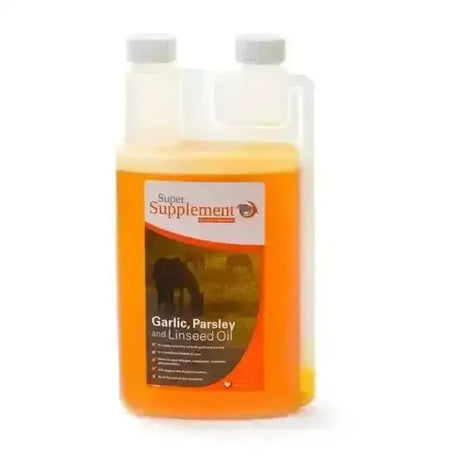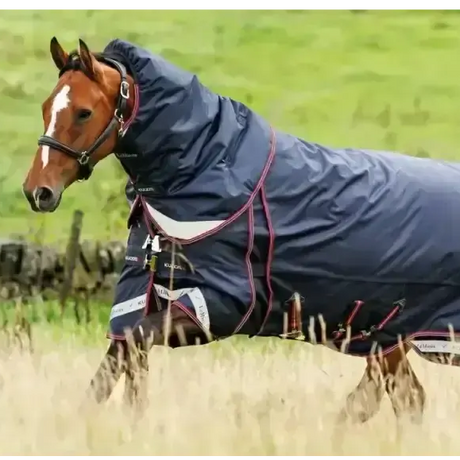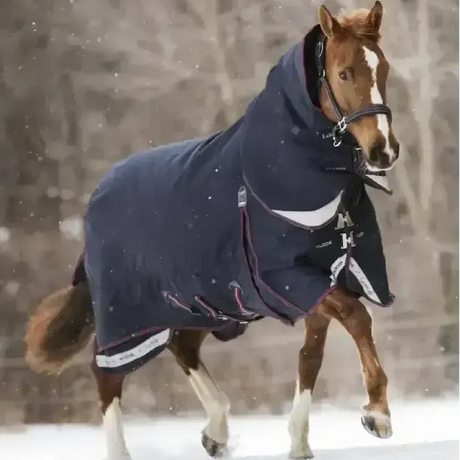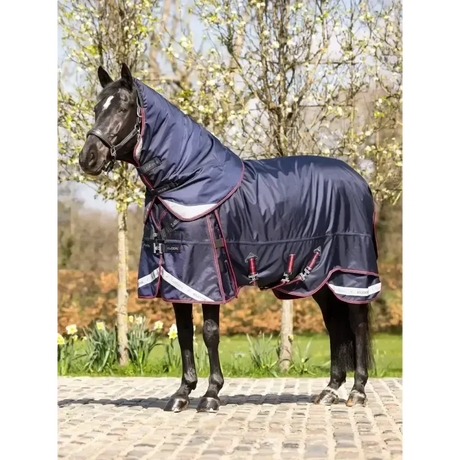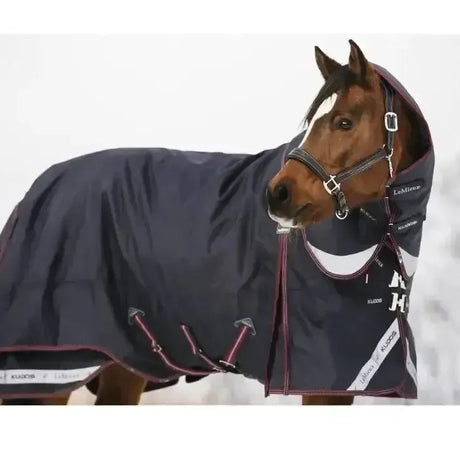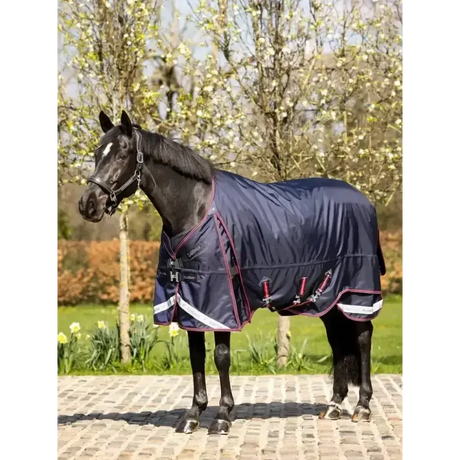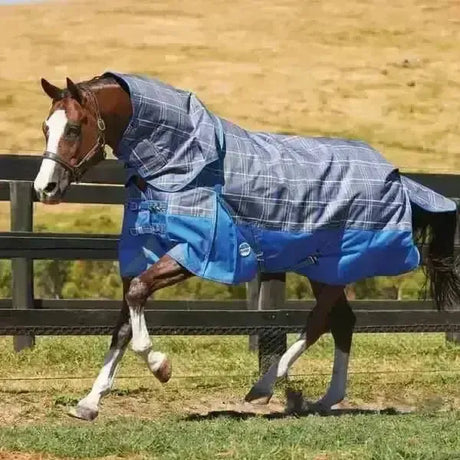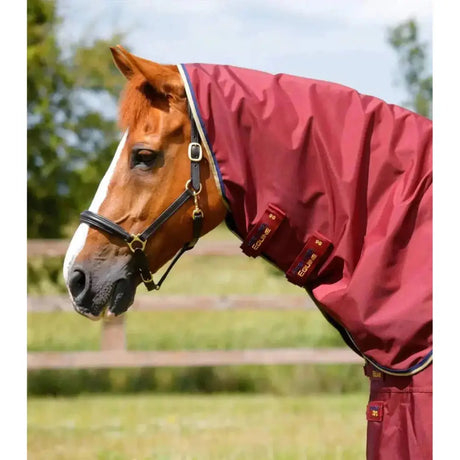Coughs In Horses
Coughing in horses can be a sign of various underlying issues, ranging from mild irritation to more serious respiratory conditions. While an occasional cough may not be a cause for concern, persistent coughing should be addressed promptly to prevent any long-term health complications.
Common Causes of Coughing in Horses:
1. Dust and Environmental Irritants:
-
Description: Dust from hay, bedding, or the environment can irritate a horse's respiratory tract, causing them to cough.
-
Symptoms: Dry, sporadic coughing, especially when eating hay or in dusty environments (e.g., barns).
-
Management:
-
Soaking Hay: Wetting hay can reduce dust and minimize irritation.
-
Good Ventilation: Ensure the barn is well-ventilated to minimize airborne dust.
-
Dust-Free Bedding: Use low-dust bedding materials like paper, straw, or dust-extracted shavings.
2. Allergies (Recurrent Airway Obstruction - RAO or Heaves):
-
Description: RAO, commonly known as "heaves," is a chronic, allergic respiratory condition similar to asthma in humans. It’s triggered by environmental allergens like dust, mold, or pollen.
-
Symptoms:
- Persistent coughing, particularly during exercise or while eating.
- Difficulty breathing, especially during exertion.
- Nasal discharge and, in severe cases, the development of a "heave line" along the abdomen due to prolonged labored breathing.
-
Management:
-
Reduce Exposure to Allergens: Move the horse to a well-ventilated area, turn out as much as possible, and avoid dry, dusty hay.
-
Medication: Veterinarians may prescribe bronchodilators, corticosteroids, or other medications to manage inflammation and symptoms.
-
Feeding Changes: Feed soaked hay or haylage to reduce dust.
3. Infections (Viral or Bacterial):
-
Description: Respiratory infections, such as equine influenza, strangles, or equine herpesvirus, can cause coughing. Viral infections typically spread quickly through contact with other horses.
-
Symptoms:
- Persistent coughing.
- Fever, nasal discharge, lethargy, and loss of appetite.
- Enlarged lymph nodes (particularly with strangles).
-
Management:
-
Veterinary Diagnosis: It's important to have a veterinarian evaluate the horse to determine whether the infection is bacterial or viral.
-
Rest and Isolation: Infected horses should be isolated to prevent spreading the illness to other horses.
-
Treatment: In the case of bacterial infections, antibiotics may be prescribed. Viral infections typically require supportive care, such as rest and hydration.
-
Vaccination: Regular vaccinations can help prevent certain viral infections like equine influenza and equine herpesvirus.
4. Exercise-Induced Pulmonary Hemorrhage (EIPH):
-
Description: Horses involved in intense physical activities, such as racing or eventing, may suffer from EIPH, where blood vessels in the lungs rupture, causing bleeding into the airways.
-
Symptoms:
- Intermittent or chronic coughing, particularly after strenuous exercise.
- In severe cases, blood may be visible coming from the nostrils (epistaxis).
-
Management:
-
Veterinary Examination: Diagnosis is confirmed via an endoscopy after exercise.
-
Rest: Reducing the intensity of exercise can help prevent further episodes.
-
Medication: Veterinarians may prescribe medications such as furosemide (Lasix) to reduce the risk of bleeding during intense activity.
5. Laryngeal Paralysis (Roaring):
-
Description: Also known as "roaring," this condition occurs when the laryngeal nerve becomes paralyzed, causing the airway to narrow and a characteristic noise during breathing.
-
Symptoms:
- Coughing, particularly during or after exercise.
- Struggling to breathe, especially during intense work.
- A roaring or whistling noise when the horse inhales.
-
Management:
-
Surgical Correction: A procedure called a "tie-back" surgery may be performed to correct the issue by permanently holding the affected vocal cord out of the airway.
-
Reducing Exercise: Horses with mild cases may benefit from reduced physical activity.
6. Choke:
-
Description: Choke in horses occurs when food becomes lodged in the esophagus, leading to coughing as the horse tries to clear the blockage.
-
Symptoms:
- Coughing, drooling, and difficulty swallowing.
- Discharge of food and saliva from the nostrils.
-
Management:
-
Veterinary Attention: Choke is an emergency that requires immediate veterinary care to clear the blockage.
-
Preventing Future Episodes: Soaking hard feed and ensuring horses eat slowly can help reduce the risk of choke.
7. Foreign Objects:
-
Description: Sometimes, foreign objects such as bits of hay, straw, or even bedding can become lodged in a horse's throat or respiratory tract, causing coughing.
-
Symptoms: Sudden onset of coughing without other signs of illness.
-
Management:
-
Veterinary Examination: If coughing persists, a veterinarian may use an endoscope to inspect the horse's airway for foreign objects.
-
Removing the Object: Depending on the severity, the veterinarian may remove the object manually or recommend further treatment.
When to Call a Veterinarian:
- If your horse has a persistent cough that lasts more than a few days or seems to worsen.
- Coughing is accompanied by nasal discharge, especially if it’s yellow or green, indicating infection.
- The horse has difficulty breathing, exhibits exercise intolerance, or shows signs of distress.
- If the horse has a fever, is lethargic, or has enlarged lymph nodes.
- If the cough is associated with choking or if the horse shows signs of a foreign object in its airway.
Preventative Measures:
-
Good Stable Management: Ensure that the horse’s environment is well-ventilated and free from excessive dust or mold.
-
Soaked Hay or Haylage: Feeding soaked hay can reduce dust and prevent respiratory irritation.
-
Regular Veterinary Checkups: Annual vaccinations and regular checkups can help prevent respiratory infections.
-
Avoid Overexertion: Gradually increase the intensity of exercise to prevent conditions like EIPH.
Conclusion:
Coughing in horses can range from mild irritations to signs of serious health conditions. Monitoring the frequency, context, and accompanying symptoms of the cough is important for determining its cause. If you're ever unsure, consulting a veterinarian for a proper diagnosis and treatment plan is essential to maintaining your horse's health and performance.

